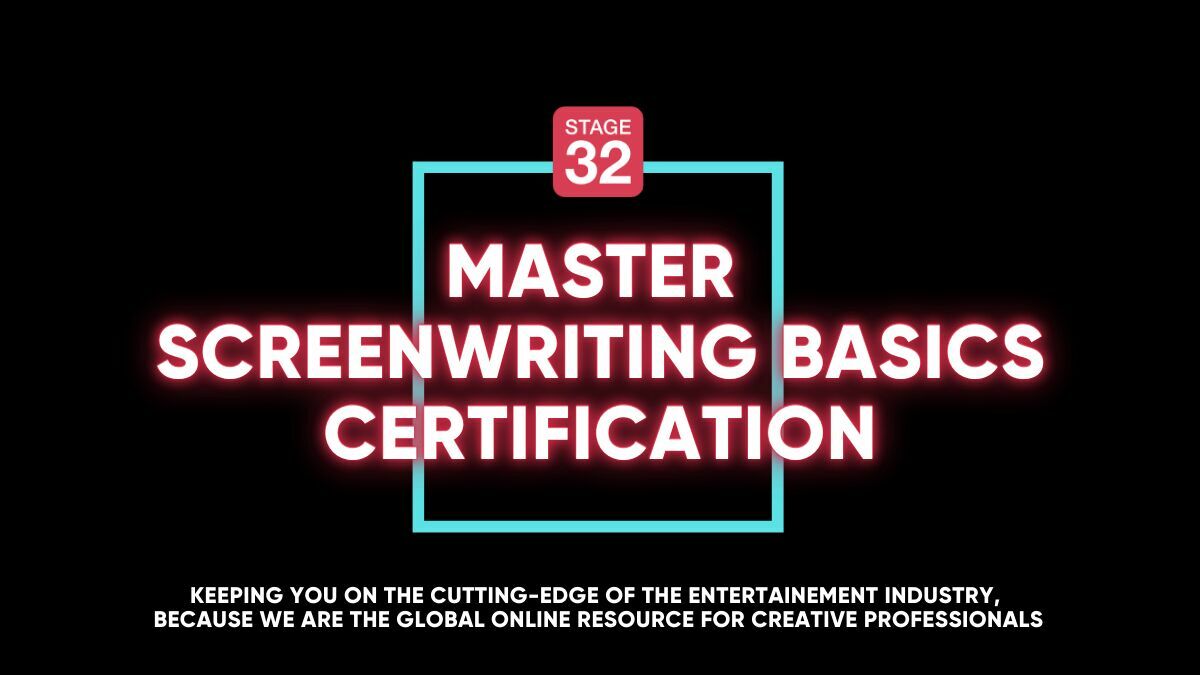Hi everybody,
I hope all of you have a great weekend. While I was continuing my sci-fi screenplay storyline, I started to write down some props, stunts, and special effects. I am using StudioBinder to format my script and came across the terms "special effects", "optical FX", "mechanical FX", and "visual FX". I know, what special effects are but am not clear on all the subterms and hope that some of you can give me a brief description of the meaning of the differences between visual and optical FX. I figure mechanical FX relates to machinery and vehicles if that is correct?
Thank you so much for your help and your time,
Best regards,
Lucie



2 people like this
Hi Lucie - sorry to muddy the waters. As a screenwriter; why do you care? As a Director/Editor the only 'real' term is 'FX' where it does matter to the budget Different people use different terms to say the same thing. I think of a film as a visual creation so I just call 'em 'VFX'. I'm sure you'll find those that want to argue the fine points - but it just doesn't matter in the real world.
Hi Doug, thank you for your honest feedback. I think I can deal with a bit of mud, hahaha ;-). I do care because I aim to understand even the things that seem unimportant. I have a curious nature and enjoy getting to know the whole picture. Yes, it might not be essential for a screenwriter to understand those terms but in order for me to categorize the elements of my vision for special effects in my screenplay, I do need to know that in my opinion. Thank you again for your time and comment.
1 person likes this
Special effects are "real" -- they take place on the set. They are filmed by the camera, just as the actors are. So smoke, things on fire, sprinklers for rain, collapsible walls, etc. Visual effects are created in post, and don't really exist. So lasers, magical effects, spaceships, CGI, etc.
There are also “post”, “in camera” and “practical”. If you want to get a great understanding of the process. Make a short film. They can be done in a day depending on the complexity. Here are two that took no more than a few days each.
https://youtu.be/EjX96oYyp7s
https://youtu.be/jcy6SbxfkXI
Mostly done to learn what needs to be in a screenplay. How things on the page end up on video. Plus my daughter wanted to be a director. Based on Blood Brother she got to meet Sam Worthington at a young directors lab (she was 17 at the time). Her feedback was “he smelt so good”.
3 people like this
What Doug said.
Special effects can be done in a variety of different ways, and those decisions are made in Preproduction. Not by the screenwriter. So a spaceship might be a physical model, like in the original STAR WARS, but that model might be filmed in front of a practical background - a painting or photo of space, or optically "married" to a picture of space, or the spaceship might be CGI - an image created on a computer, or a bunch of other ways. The same spaceship shot can be done several ways...
And none of that is our decision.
If you are curious, there are hundreds of books on how special effects are done - back to the Schuftan Process - which is just a mirror. Cheapest low budget effect ever!
Hi Craig, I did a short film but did all my effects in post.
Rohit Kumar, piggybacking is great, hahaha. Thanks for the great link.
1 person likes this
So glad you asked! The basic distinguishment between SFX and VFX is Special Effects are those done on set (e.g. explosions or SFX make-up), but VFX requires post-production artistry (e.g. CGI or rotoscoping).
I can't say as I'm familiar with optic effects, but that sounds like something controlled by the camera lens, like a lens flare (although we have figured out how to do that via post-production now, too), but perhaps it includes things like reshaping a table to create forced perspective (example of forced perspectives: https://www.youtube.com/watch?v=OunMO9wr1SQ).
Mechanical effects sounds like the mechanical engineering required for certain props, like in Harry Potter (example: https://www.youtube.com/watch?v=5ONwPHla2nQ).
This article seems to say the same about "mechanical effects": https://www.media-match.com/usa/jobtypes/mechanical-effects-jobs-402741.php#:~:text=Mechanical%20Effects%20(also%20called%20Practical,are%20examples%20of%20Mechanical%20Effects.
I just started a post in the Post-Production Lounge with a video about Common VFX Terms, so if anyone wants to learn more, you can join the conversation here: https://www.stage32.com/lounge/post_production/Common-VFX-Terms-Still-co...
Hi - Script supervisor here. SFX (special effects) are LIVE effects - they happen on set (explosions, car crashes, SFX make-up, etc). VFX (visual effects) almost exclusively refers to CGI at this point, which are done in post-production. Optical effects and mechanical effects seem to refer to outdated practices that would probably fall into VFX now (e.g. an optical zoom or optical composite - these would have been done in post with optical printing - and mechanical effects probably means something you would do either in camera or with the camera settings - this could be anything from slow or fast motion or ramping to in-camera vignetting, to pulling F-stop). All effects including VFX require some work while on set - whether it's shooting additional plates or against a green screen or taking measurements or hiding a blood pump. Many effects now are a combination of live and post , e.g. a gunshot and wound - the blood could be partially live, partially CGI-enhanced, the flash is usually put in post-production, etc. As a writer, you don't need to break this down - there are ADs and people in multiple departments figuring this out with the director! I hope this was helpful! I think I should write a blog. ;)
1 person likes this
E. Amato, wow, thank you so much for your very detailed post. I really enjoyed how you broke it down into understandable chunks with examples. I know, that as a screenwriter how to display the special effects and VFX is not my call to make but for now, while I am writing, it kind of drives my motivation even higher as I picture how my scenes could come to life.
"Kay" Ross, thank you so much for your comment, examples, and videos to watch.
E. Amato great rundown! All this talk of FX just makes me think of "Fix it in Post."